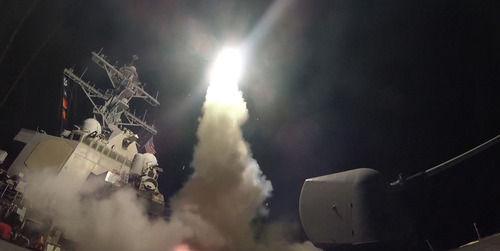Beijing, 8 Dec (Xinhua) -- Richard Falk, professor emeritus of international law and practice at Princeton University in the United States, said in an exclusive interview with Xinhua News Agency a few days ago that the United States has returned home in past wars but has not learned lessons.
The US government has evolved into a "militarized state bureaucracy", blindly pursuing a national strategy based on military strength and using terms such as "rules-based international order" to cover up US hegemony. In contrast, China's peaceful development reflects the superiority of a non-coercive, win-win foreign policy.
Falk, an international jurist and former national jurist at the United Nations, spent his early years visiting Vietnam during the war, and his personal experience led him to deeply doubt the legitimacy and legitimacy of U.S. wars abroad.
"I have traveled to Hanoi, engaged with the top echelons of the authorities and witnessed first-hand the tragedy of the (American) high-tech war machine wielding a brutal threat to an agrarian society, while Vietnam wants to achieve independence," he said. This experience upended my perception. ”

On April 7, 2017, in the Mediterranean, A U.S. Navy ship fired a Tomahawk missile. Xinhua News Agency (Courtesy of the U.S. Navy)
In Falk's view, the United States still did not learn the lessons of the Vietnam War, but continued to fall behind the same mistake. "Despite its absolute military superiority, the United States is still returning home in Vietnam, but it has not learned its lessons and has not realized that military involvement is not an effective geopolitical policy," he said. ”
Falk said the U.S. war in the Middle East has increasingly exposed the absurd nature of its routine of "military intervention – subversion of regime – long-term occupation – pro-regime support" in the post-colonial era.
The former U.N. expert noted that the unrealistic expectations of the U.S. political class to sit on military superiority and coerce geopolitical opponents are no longer in line with the general trend of the world today.
"It turns out that the United States has long shown a belligerent posture after World War II, resulting in its foreign policy relying too much on force," he said. The United States has gradually become a highly militarized state bureaucracy, retaining high military budgets even in peacetime, causing the United States to continue to exaggerate security threats and falsely claim that military means are sufficient to meet foreign policy challenges. ”
On September 18, in a residential area of Kabul, Afghanistan, which was attacked by a U.S. drone on August 29, relatives of the victims stood on the wreckage of a car. Xinhua News Agency (Photo by Sevrahman Safi)
"The American political class blindly follows the paradigm of political realism, that is, it expects to use its military superiority to coerce geopolitical opponents. Yet the history of the late twentieth and twenty-first centuries shows that 'soft power' has begun to dominate world history. Hard power (military power) can still be massively destroyed, but it is no longer possible to dominate the direction of politics. ”
Falk also added that military intervention and military power projection have long since become obsolete and have lost their effectiveness. However, these tactics, even if they are destined to lead to political errors, continue to be favored by the U.S. arms industry, private military and security companies.
U.S. authorities advocate a "rules-based international order" in foreign policy. In response, Falk pointed out that similar remarks "in no way mean that the United States will respect international law, but rather that other countries will be forced to comply with the will of the United States and the rules designated by the United States." The United States itself has spared its geopolitical ambitions, paying no attention to the framework set by international law and the Charter of the United Nations. ”
In his view, the so-called "forced labor" and "genocide" allegations against China by the United States are typical cases. The international human rights law expert believes that the United States selectively uses the human rights issue to incite anti-China sentiment and uses human rights as a tool for political propaganda.
Falk believes that under the careful guise of "defending the rules-based international order," the U.S. authorities have "intensified the confrontational side of U.S. policy toward China." He also denounced the worldview behind this foreign policy as "a legacy of the Cold War era and made (military) alliances and geopolitical confrontations a top priority in defending Western security." "This geopolitical confrontational stance, combined with an already excessively high military budget, has led to the decline of America's great power status, preventing the United States from securing its own infrastructure and social protection of its own people," he argued. ”
In Falk's view, China's more peaceful rise has demonstrated the superiority and mutual benefit of the "soft power world outlook and strategy", and instead of learning from it and changing course, the United States has intensified its confrontational attitude toward China, in the hope of being able to maintain the global hegemony of the United States.
Falk warned of dangerous impulses within the American political class, advocating the "necessity" and urgency of war against China. He said such a serious miscalculation was the result of their blind belief in military strength and the hegemony of the United States in the world. (Reporters: Chen Junxia, Xu Chi; Editors: Shen Haoyang, Li Quan)
Produced by the International Department of Xinhua News Agency
Produced by Xinhua News Agency's International Communication Integration Platform
Source: Xinhua News Agency